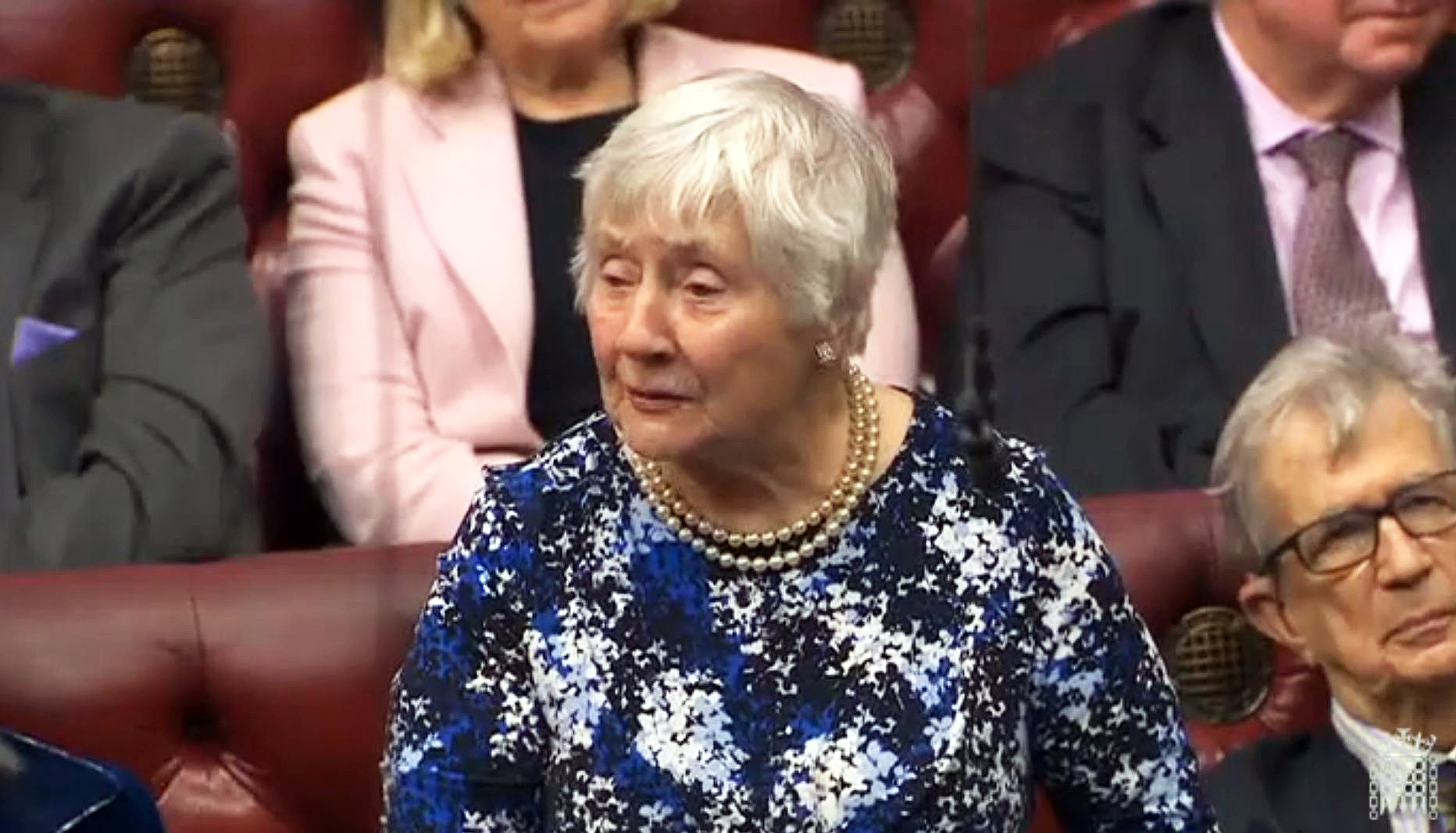
As MPs mull multi-billion pound plans to refurbish the palace, there’s plenty people who would rather politicians sat in a more modern setting.
But when Shirley Williams got to her feet last week in the gilded surroundings of the House of Lords, it felt appropriate.
Because this was her valedictory speech, her last contribution in the Houses of Parliament.
Williams is taking advantage of House of Lords reform that allows members to retire.
It was her fellow Lib Dem Lord David Steel who made that law from the backbenches in 2014.
He was the only person to heckle her final statement, and then to good-naturedly point out that he had not intended for the likes of her to stand down when he’d championed the change.
Baroness Williams stumbled over her words a few times. By her own admission the 85-year-old is getting out before she gets too doddery.
Yet she was still a class act.
She held the chamber rapt with a genuinely inspiring speech in praise of what a “lucky country” the UK is.
LISTEN TO THE LATEST SUNDAY POST POLITICS PODCAST – CLICK HERE
She focused on the nation’s “special genius” for “great public sector imagination”. The three examples she chose are all popularly reduced to letters – NHS, BBC and OU, the Open University.
She was right that these are towering national achievements.
But it was also apt that she chose institutions best known as acronyms.
For it was three letters that did for her career – SDP.
Williams was a rising star of the ’70s. She was education secretary in Jim Callaghan’s blighted administration.
But when Labour’s left wing captured the party under Michael Foot she walked out along with David Owen, Roy Jenkins and Bill Rodgers, the so-called Gang of Four.
Last week marked 35 years since they formed the Social Democratic Party.
Anniversaries of that number – the present should be coral in case anyone should ask – rarely garner much attention.
But with Labour once again in the thrall of left-wingers, talk of a new split is on the agenda in Westminster.
The experience of the Gang of Four might mitigate against it.
David Owen led his rebels out of the Labour Party because he was ambitious, he thought Labour was finished under Foot and the SDP would replace it.
But he overestimated his own abilities and underestimated the resilience of Labour.
Williams or Owen could’ve been Labour leaders. Instead they would play out the rest of their political lives on the margins. Williams eventually found a home in the Lib Dems, Owen a bitter independent.
Like Owen in his day, Chuka Umunna is dashing, persuasive, ambitious and a potential future Labour leader but he won’t want to share the former foreign secretary’s fate.
The calculation he and others of his ilk like Liz Kendall, Rachel Reeves and Dan Jarvis must make is whether a split would damage them or the party and whether it’s their own career or the future of the Labour Party they are most concerned with.
And there is another calculation unique to our times. If the SNP are to boss Scotland for the foreseeable future in terms of number of MPs then Labour are snookered whoever their leader is, and a coalition of some sort is the only way to topple the Tories.
Would a centre-left politician be happier in a centre-left party in coalition than taking their orders from Jeremy Corbyn? It may have a little way to run but the clock is ticking on how long Labour moderates will tolerate Corbyn.
Shirley Williams’ final speech closed a chapter in history, but the story of the SDP may not be finished yet.
READ MORE
Mhairi Black: ‘Nippy conversations’ ended patronising comments from fellow MPs
James Millar: SNP MP Pete Wishart’s political reputation is expanding

Enjoy the convenience of having The Sunday Post delivered as a digital ePaper straight to your smartphone, tablet or computer.
Subscribe for only £5.49 a month and enjoy all the benefits of the printed paper as a digital replica.
Subscribe